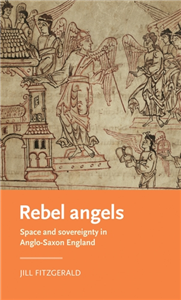Description
More Information
Rights Information
Albania, Algeria, Angola, Argentina, Armenia, Australia, Austria, Bahrain, Belgium, Belize, Benin, Bolivia, Bosnia and Herzegovina, Botswana, Brazil, Bulgaria, Burkina Faso, Burundi, Cameroon, Canada, Cape Verde, Central African Republic, Chad, Chile, China, Colombia, Comoros, Congo [DRC], Congo, Republic of the, Costa Rica, Ivory Coast, Croatia, Czech Republic, Denmark, Djibouti, Ecuador, Egypt, El Salvador, Equatorial Guinea, Eritrea, Estonia, Ethiopia, Faroe Islands, Finland, France, French Guiana, Gabon, Gambia, Georgia, Germany, Ghana, Greece, Guatemala, Guinea, Guinea-Bissau, Guyana, Honduras, Hongkong, Hungary, Iceland, India, Indonesia, Iran, Iraq, Ireland, Israel, Italy, Japan, Jordan, Kazakhstan, Kenya, Kuwait, Latvia, Lebanon, Lesotho, Liberia, Libya, Lithuania, Luxembourg, Macau, China, Macedonia [FYROM], Madagascar, Malawi, Malaysia, Mali, Malta, Mauritania, Mauritius, Mayotte, Mexico, Mongolia, Montenegro, Morocco, Mozambique, Namibia, Netherlands, New Zealand, Nicaragua, Niger, Nigeria, Norway, Oman, Pakistan, Panama, Paraguay, Peru, Philippines, Poland, Portugal, Puerto Rico, Qatar, Reunion, Romania, Russia, Rwanda, Saint Helena, Sao Tome and Principe, Saudi Arabia, Senegal, Serbia, Seychelles, Sierra Leone, Singapore, Slovakia, Slovenia, Somalia, South Africa, South Korea, Spain, Sri Lanka, Sudan, Suriname, Swaziland, Sweden, Switzerland, Syria, Taiwan, Tanzania, Thailand, Timor-Leste, Togo, Tokelau, Tunisia, Turkey, Uganda, Ukraine, United Arab Emirates, United Kingdom, United States, Uruguay, Venezuela, Vietnam, Western Sahara, Yemen, Zambia, Zimbabwe, South Sudan, Cyprus, Palestine, Bangladesh, Cambodia, Liechtenstein, Azerbaijan
Endorsements
The Anglo-Saxons possessed a complex, ever-changing theory of the fall of the angels. This is the first comprehensive study of how early medieval authors transformed exegetical teachings about the angelic rebellion into a rich literary tradition, from the works of Bede to the Old English poems of the Junius manuscript. One reason why this narrative so captivated poets, homilists, political thinkers and even kings was because it gave them a symbolic language with which to discuss when and how space and territory - heavenly, earthly, hellish - were first created and fought over. In their adoption of both apocryphal and patristic ideas surrounding the angelic rebellion, Anglo-Saxon authors characteristically imagined Satan and his cohort as powerful noblemen or veteran retainers who betray their lord's munificence in a struggle for power and land, thereby encoding cultural anxieties surrounding the politics of territorial inheritance and disinheritance in their adaptations of the narrative. This book charts shifting attitudes toward the fall of the angels narrative from roughly the eighth to the eleventh centuries through focused readings of a diverse range of literary and historical texts, including Old English biblical poems, royal land charters, legal documents, saints' lives, the homilies of Ælfric and Wulfstan, and liturgical materials along with their attendant spatial practices. The fall of the angels was not simply a cautionary tale for Anglo-Saxon Christians, but a narrative that fundamentally informed the construction of early medieval ecclesiastical and social worlds in ways that have not been previously recognised.
Reviews
The Anglo-Saxons possessed a complex, ever-changing theory of the fall of the angels. This is the first comprehensive study of how early medieval authors transformed exegetical teachings about the angelic rebellion into a rich literary tradition, from the works of Bede to the Old English poems of the Junius manuscript. One reason why this narrative so captivated poets, homilists, political thinkers and even kings was because it gave them a symbolic language with which to discuss when and how space and territory - heavenly, earthly, hellish - were first created and fought over. In their adoption of both apocryphal and patristic ideas surrounding the angelic rebellion, Anglo-Saxon authors characteristically imagined Satan and his cohort as powerful noblemen or veteran retainers who betray their lord's munificence in a struggle for power and land, thereby encoding cultural anxieties surrounding the politics of territorial inheritance and disinheritance in their adaptations of the narrative. This book charts shifting attitudes toward the fall of the angels narrative from roughly the eighth to the eleventh centuries through focused readings of a diverse range of literary and historical texts, including Old English biblical poems, royal land charters, legal documents, saints' lives, the homilies of Ælfric and Wulfstan, and liturgical materials along with their attendant spatial practices. The fall of the angels was not simply a cautionary tale for Anglo-Saxon Christians, but a narrative that fundamentally informed the construction of early medieval ecclesiastical and social worlds in ways that have not been previously recognised.
Author Biography
Jill Fitzgerald is Assistant Professor in the Department of English at the United States Naval Academy
Manchester University Press
Manchester University Press is a leading UK publisher known for excellent research in the humanities and social sciences.
View all titlesBibliographic Information
- Publisher Manchester University Press
- Publication Date May 2021
- Orginal LanguageEnglish
- ISBN/Identifier 9781526155924 / 1526155923
- Publication Country or regionUnited Kingdom
- FormatPrint PDF
- Pages336
- ReadershipGeneral/trade
- Publish StatusPublished
- Dimensions216 X 138 mm
- Biblio NotesDerived from Proprietary 4630
- SeriesManchester Medieval Literature and Culture
- Reference Code13892
Manchester University Press has chosen to review this offer before it proceeds.
You will receive an email update that will bring you back to complete the process.
You can also check the status in the My Offers area

Please wait while the payment is being prepared.
Do not close this window.



